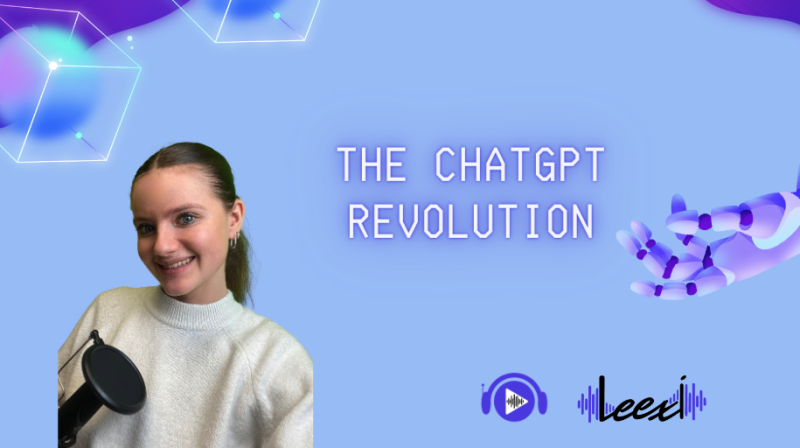How is artificial intelligence capable of generating text ?
- What is intelligence?
- The history of ChatGPT
- The different steps

Artificial intelligence has become a major field of technological development, attracting the interest and investments of tech giants. One of the most notable projects in this field is ChatGPT, an artificial intelligence system developed by OpenAI. In this article, we will learn about what intelligence is, trace the fascinating history of ChatGPT, and explore how this technology is capable of generating text. Discover the motivations behind the creation of ChatGPT, the challenges it faces, and the ethical issues raised by this technology.
What is intelligence ?
Intelligence is a faculty of the human mind that encompasses rational thinking, sensory perception, memory, and the ability to manipulate objects. According to Aristotle, sensory experience and memory play an important role in the development of intelligence.
For Nietzsche, intelligence is not limited to mere logical reasoning ability. It also includes creativity, intuition, and questioning established values.
Pierre Teilhard de Chardin proposes an optimistic vision of the future of humanity through the noosphere, a constantly evolving collective consciousness. According to him, our ability to cooperate, share knowledge, and work together is essential for the development of the noosphere and new advances in the fields of science, technology, and spirituality.
Intelligence is therefore a complex faculty that goes beyond simple logical reasoning. It encompasses creativity, intuition, and questioning of norms.

The history of ChatGPT
The history of ChatGPT dates back several years. In 2014, Google acquired DeepMind, a company founded in 2010, marking its entry into the field of artificial intelligence. The same year, IBM launched Watson, another artificial intelligence system. Google quickly took the lead in this field but eventually decided to put the ChatGPT project on hold. But what was the reason? To avoid competing with its online advertising revenue, which amounted to $162 billion per year, accounting for 58% of its total revenue. However, Google's vision that machines could replace humans as a form of Darwinian evolution was opposed by Elon Musk. In partnership with Sam Altman, founder of Y Combinator, they decided to fund a similar project but with a different approach. In December 2015, they created OpenAI, a non-profit organization with the goal of developing advanced artificial intelligence. They invested $100 million in this initiative. However, Elon Musk left OpenAI in 2018 to focus on other projects.
OpenAI then evolved into an open-source version, distributed for free, allowing more people to use it and contribute to its development. In 2019, OpenAI transitioned from a non-profit association to a limited liability company to better align with its ambitions and partnerships. That same year, Microsoft invested $1 billion in OpenAI, recognizing the potential of this advanced artificial intelligence. Then, in 2023, Microsoft reaffirmed its commitment by investing an additional $10 billion in OpenAI. However, in November 2023, a major crisis erupted within the organization. Sam Altman, co-founder of OpenAI, was fired, and eventually, the entire board of directors resigned. This crisis had a significant impact on the future of ChatGPT and raised questions about the direction of artificial intelligence. Despite these turbulences, the history of ChatGPT reflects the growing importance of artificial intelligence in our society. Tech giants like Google and Microsoft are investing substantial sums in the development of these technologies, while voices like Elon Musk's highlight the ethical issues and limitations of artificial intelligence.
But how is AI capable of generating text?
Thanks to the LLM ( Large Learning Model) program !
A large language model (LLM) is a type of artificial intelligence program capable of, among other tasks, recognizing and generating text. An LLM is a computer program that has been given enough examples to be able to recognize and interpret human language or other types of complex data. Many LLMs are trained on data collected from the internet, thousands or millions of gigabytes of text. They use a type of machine learning called deep learning to understand how characters, words, and phrases work together. It is, therefore, a mathematical model that requires a large amount of data to function. Using this data, the model is trained to generate usable data. This is done by using sentences as prompts, which are then transformed into numerical vectors by quadratic projection onto the data. The process is repeated to find the next word in the sequence. However, despite its ability to generate text, OpenAI does not actually understand what it writes!

The different stages of text generation
1- Vectorization: Vectorization of questions with context is done by transforming words into numerical vectors using natural language processing techniques such as Word2Vec or GloVe.
2- Orthogonal projection: Once the questions and context are vectorized, OpenAI uses an orthogonal projection to project these vectors onto the space of the pre-trained model. This projection helps find the vector closest to the model's base, which represents the next sequence of words in the given context.
3- Weighting: If multiple vectors are found, OpenAI uses weighting techniques to decide which is the next word generated. These techniques can take into account factors such as the probability of the word in the given context, the frequency of the word in the training corpus, or other statistical metrics.
By using the closest vector to the base, OpenAI can consistently and contextually generate the next word.
In conclusion
Artificial intelligence is a revolution as it is capable of generating text through large language models. These programs are trained on large amounts of textual data and use deep learning techniques to understand and generate human language. However, it is important to note that despite its ability to generate text, AI does not actually understand what it writes. These advancements raise ethical questions and require ongoing reflection on the responsible use of AI. Furthermore, the history of ChatGPT illustrates the rapid evolution of artificial intelligence and its increasing impact on our society. Despite obstacles and controversies, projects like ChatGPT continue to push the boundaries of what technology can achieve. The future of ChatGPT remains uncertain, but it is undeniable that artificial intelligence will continue to evolve and shape our world significantly.
A strong commitment to your security and that of your data

ISO-27001 Certification

GDPR compliance

SSL technology

Pentest by Nviso
Ready to boost your productivity with Leexi?
Leexi AI Notetaker takes notes for you
